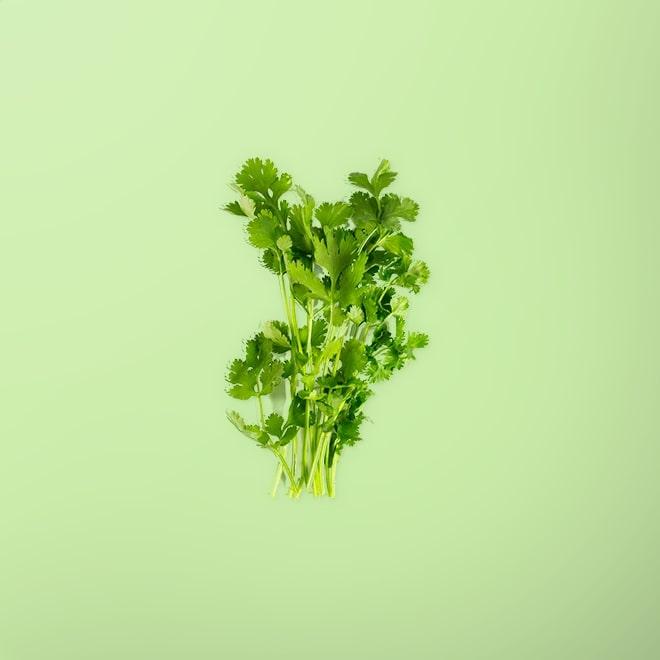Cilantro




Cilantro, also known as coriander, and less commonly known as Chinese celery, is a bright and citrusy herb used in Latin American, Asian, and Caribbean cuisines.
It has a reputation for being a divisive ingredient; it tastes vibrant and herbaceous to some but bitter and soapy to others.
Like parsley and other types of fresh herbs, cilantro is sold in bunches. Choose cilantro that has firm, bright green leaves - skip bunches with limp or yellowing leaves.
Always store cilantro in the fridge. You can wrap it loosely in a damp paper towel, or you can also put a bit of water in the bottom of a jar and place the cilantro stem-side down and cover with a plastic bag.
Try pulsing cilantro into your next pesto in place of basil. It goes particularly well with pepitas instead of pine nuts, and lime in place of lemon!
Cilantro stems can be placed in oil bottles and left in order to infuse the oil with great flavor. Use the oil on your meat dishes, pasta dishes, or salads for extra flavor.
To a small portion of people, cilantro tastes soapy rather than citrusy, which they can totally blame on genetics. Science says these folks have olfactory receptors that detect aldehyde chemicals, which are actually found in both cilantro and soap.
If left to grow, cilantro will produce buds and then seeds - coriander seeds! After producing seeds, the surrounding leaves no longer have their signature punchy, citrusy flavor.
Use the entire cilantro, stem to leaves. The stems are soft and have a mellow flavor, so you can simply chop them up and toss them into whatever you’re preparing.
Always wash the cilantro just before you use it, preferably with a salad spinner to remove the grit and sand that often settles into the leaves.
Cilantro enhances the flavor of so many dishes, like guacamole, chicken soup, green salads, tacos, eggs, stews, bean-based dishes, and sauces.
The cilantro herb is very low in calories and contains no cholesterol. It’s high in antioxidants, essential oils, vitamins, and dietary fiber, which may help reduce LDL or "bad cholesterol" levels in the blood.
Cilantro is very high in vitamin K, which is important for blood coagulation. Coriander seeds are known for their ability to help regulate blood sugar levels.
Corrections or improvements? Email us at
content@sidechef.com